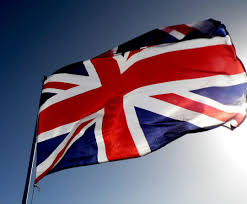 [..]
[..]
In Great Britain, the defection from the Conservative government of the very colorful mayor of London, Boris Johnson, probably the most popular political figure in the country, to lead the campaign to take Britain out of the European Union has the makings of a decisive setback for the European federalist idea, and of a new turning for Britain — which remains one of the world’s most important countries, fifth in GDP, and one of only four to six countries with a seriously deliverable nuclear military capacity.
If Britain were to chart a new course, with associate common-market status with Europe, and with enhanced economic and political cooperation with its historic allies in the Commonwealth of Nations, Canada, Australia, India, New Zealand, and Singapore, it could be a co-leader of a fairly coherent and important force in the world, with combined GDP of about $9 trillion (90 percent of China’s, and larger than Germany and Japan combined). Such a grouping would have a political status unscarred by the sort of horrible outrages that still besmirch the respectability of the Russians, Chinese, and even the Germans and Japanese.
Johnson’s move makes the outcome of the referendum, which will occur on June 23, an even bet, as he has heavy support from many Conservative members, probably half the detritus of the shattered Labour party (official opposition), and the solid U.K. Independence Party bloc of 12 percent in the election last year. It also is one of the most artful and spectacular parliamentary-coup attempts in modern British history.
In the British system, the elected Members of Parliament can force out a prime minister in mid-term, as happened to the great Margaret Thatcher in 1990, when an ungrateful cabal of Euro-integrationist cringers, who have failed to lead their party or the country remotely as effectively as she did, stabbed her in the back. Anthony Eden was pushed out by Harold Macmillan and others after the Suez debacle in 1956, but that was hardly surprising given that he had achieved the almost unimaginable indignity of being humiliated by the Egyptians.
Winston Churchill came to the highest office after a revolt against the failed appeasement policy and ineffectual war leadership of Neville Chamberlain in 1940, but he had not promoted the change and retained Chamberlain as party leader and a senior cabinet member in an all-party, national-unity war government. David Lloyd George and others pushed out Herbert Asquith in the midst of World War I, but this was all within a few rooms in Whitehall and Westminster and the public knew nothing of it.
Boris is setting out to rally a national referendary majority against his ostensible leader, in a way that might, if successful, alter the history of the Western world and, almost incidentally, slice the ground out from under Prime Minister David Cameron and his semi-designated successor, Chancellor of the Exchequer George Osborne. The enfeeblement of Europe, where the only strong large country is Germany, now itself hobbled by Chancellor Angela Merkel’s mad incitement, like an Odyssean siren, of the desperate migrants of the Middle East, is exposed for all to see.
So are the unutterably irritating pretentions of the industrious little worker bees of Brussels, robotic bureaucrats from little countries, delivering the timetable of homogenizing Eurofederation to the credulous leaders of larger nations with the insolence of Prussian schoolmasters. And also now exposed are the falsity and insipidity of all those American Euro-experts who, even after the satisfactory end of the Cold War, tried to propel the United Kingdom into a centrally governed Europe by the scruff of the neck and the small of the back — the Raymond Seitzes and Richard Burts, fluent and crisply turned out, explaining on autocue as if early graduates of the Marco Rubio school of unspontaneous rapid delivery, why Britain had to strip institutions that had served it well for centuries to clothe Euro-institutions of recent date.
With the present incontinent paralysis in Washington, the U.K. is rivaled only by Canada as the best governed G-7 country over the last 150 years. Instead of building on the Roosevelt-Churchill and Reagan-Thatcher relations which brought the West victory in World War II and the Cold War, administrations of both parties mindlessly tried to dismantle that relationship, culminating in the insulting gaucheries of the Obama regime. There are stranger, and far worse, prospects than that Donald Trump and Boris Johnson could rebuild that relationship, with all the resulting benefits of olden time.



Corruption and incompetence are like Siamese.
The end of one kind of Europe?
The European Union will end during the next severe economic downturn because due to the expansion of the continental welfare state Germany will be financially unable to subsidize the other members.
The internecine warfare.
The bitter recriminations.
It will be glorious.
Based on the EU’s precedent with voting on the Maastricht Treaty, it is safe to assume that even if the Brits vote for Brexit, the EU will keep holding referendums until it gets the “proper” result.
At this stage, the EU will fix the vote. Ruled Britannia!
as those for and those against are almost tied at 37 & 38% I expect that many of those fence sitters in the middle will opt for the status quo…..because they cant make a decision yet.
keelie Said:
Someone will have to set us (the Canadian Public) free first. We are all muzzled hogtied and on watch lists.
Democracy died last year so.. “forget about it”.
This is no country for old Kafirs.
Hmmmm… Since the Canadian parliamentary system is based on the British one, does that mean that Boy Trudeau could be “set free”?
Does anyone on this blog have a definitive answer?